Resilience is the ability to bounce back from stresses, strains and shocks. A society is resilient if it can supply its needs (e.g. for food, shelter or health) without relying on systems outside of its control. A society is not resilient if it relies on shipping large parts of its needs half way around the world. We are vulnerable to disruption brought by war, or the chaotic weather systems brought by climate change, or the volatile price of oil.
Increasing local food production can help us adapt to change and make our communities more resilient. But how?
Aquaponics brings fish and vegetables together in a symbiotic growing process. The fish produce nutrients that are used by the vegetables in a virtuous circle. The result is high-density food production that can be done at scales from the kitchen table to industrial warehouses. It works well in urban spaces that are otherwise difficult to farm.
Last weekend I was lucky enough to take a course by Charlie Price of Aquaponics UK at Humble by Nature (HBN) — a fantastic living example for localisation of food production and attendant sustainability and resilience benefits. HBN have built a beautiful solar greenhouse packed full of fishy bizniz — three large tanks of fish and twelve growbeds full of vibrant crops sprouting under the Welsh sunshine.
Water is pumped constantly from the tanks —
— into the growbeds —
— which each contain a clever gizmo called an autosiphon —
— which drains the bed as soon as it fills right to the top. The plant roots (and the worms and bacteria living under them and helping break down waste ammonia from fish metabolics) live in a continual flood-drain environment which is very conducive to rapid growth.
The plants soak up the fish waste products, and the clean water is pumped back into the fish tanks:
Solar panels above the tanks help shade the fish and buffer the energy needs of the pump and aeration gear:
There's an attractive symbiosis between fish and plant, and one of the best things about the technology is that it is necessarily organic — if we tried to add fertilisers or pesticides to the growbeds we would soon damage the fish, as would growth factors or prophylactic antibiotics fed to the fish. The widespread use of agrochemicals in our current food production industries drives down resilience — most are dependent on oil, and many inject toxicity into our environment and compromise the long-term sustainability of agriculture. The integrated ecosystem present in aquaponics (combining fish, vegetables, bacteria and worms) results in less disease and faster growth, removing the need for agrochemicals and pharmaceuticals.
Aquaponics: food for the future?
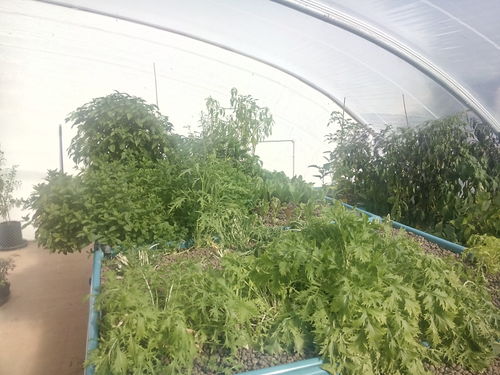
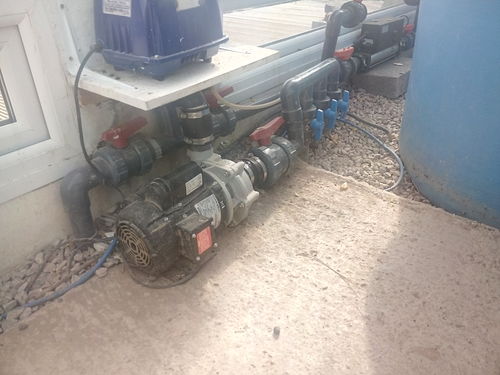
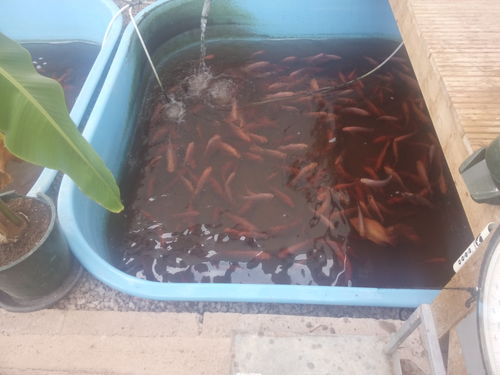
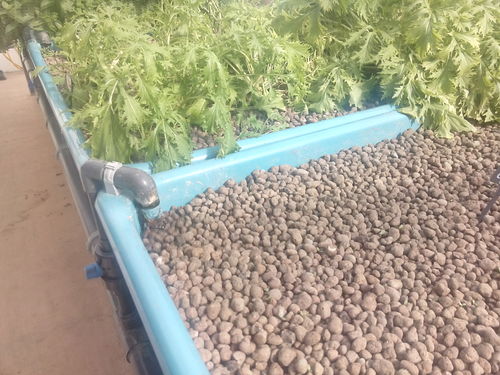
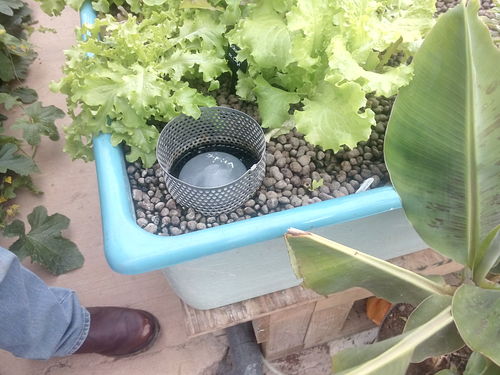
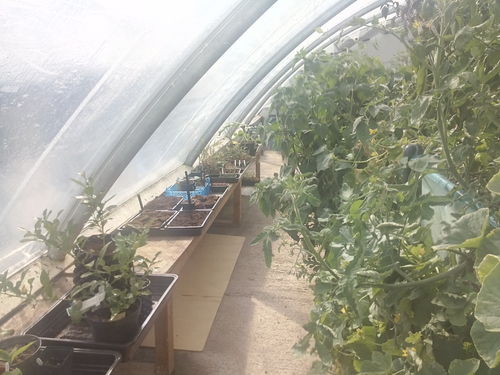
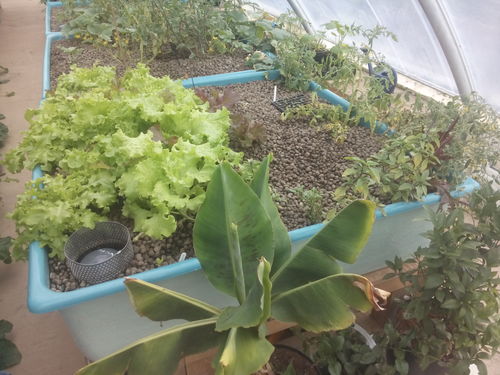
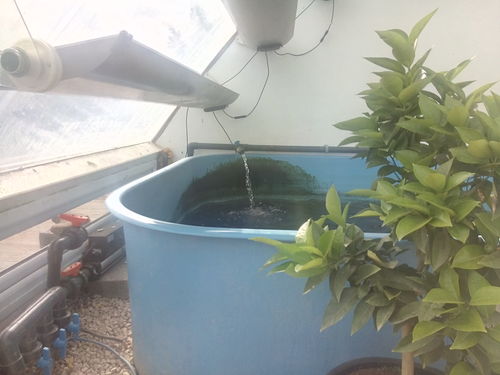
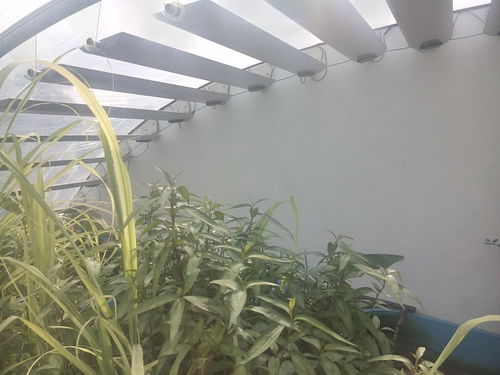
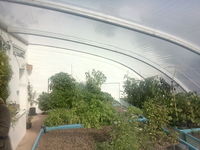
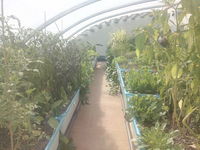
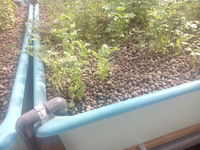
Comments
comments powered by Disqus